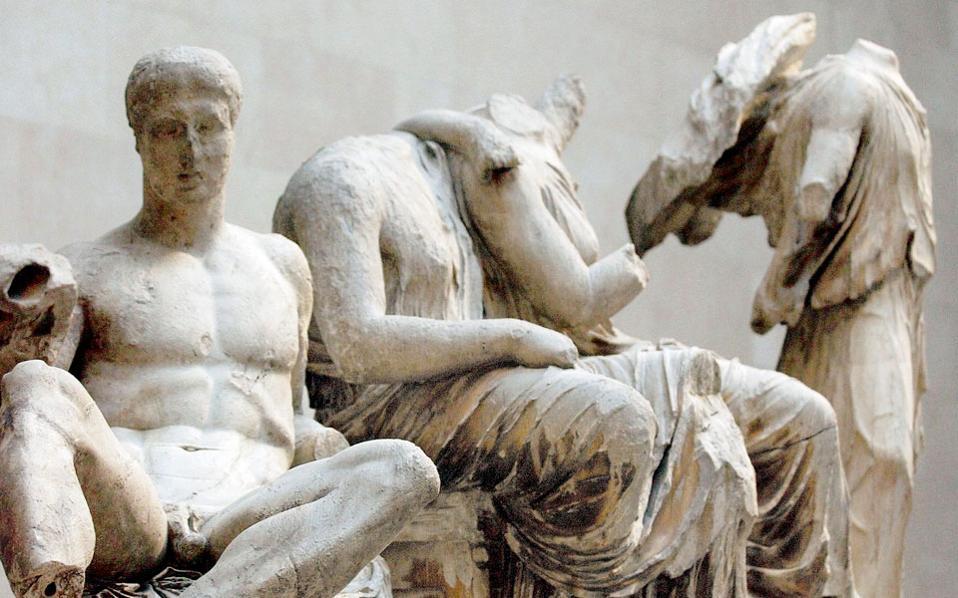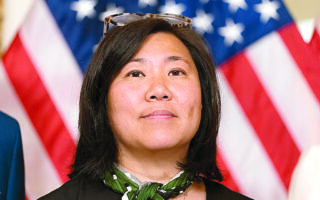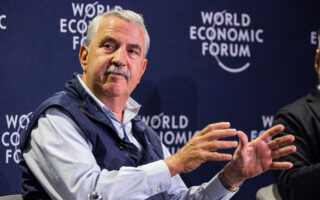British Museum theft ‘will not have any bearing’
Chair of the Parthenon Project tells Kathimerini that the organization’s ‘win-win’ solution for the marbles’ return is still on the table

Lord Vaizey, chair of the Parthenon Project, which is dedicated to the reunification of the Parthenon Marbles, is unwavering in his belief: The recent incident of antiquities theft from the British Museum in London, where the 2,500-year-old sculptures are currently displayed, will have no impact on the ongoing negotiations.
Furthermore, Vaizey, a former minister of culture, says that the organization’s proposed win-win solution to the reunification remains unchanged.
As a former minister of culture, what do you think of the British Museum thefts scandal?
This incident raises a number of important questions around how museums protect their collections, and I am pleased to hear that the British Museum is conducting a thorough investigation into this matter.
We are confident that this incident will not have any bearing on the negotiations around the Parthenon Sculptures. A win-win solution, which would see the sculptures reunified in Athens and Greek masterpieces sent to the British Museum, and the establishment of a foundation, is still very much on the table.
Is the British Museum in the position to serve its mission as a universal museum?
The British Museum has long played an important role in taking care of artifacts from around the globe, and its impressive and extensive collection will continue to support its ambition to be a universal museum.
Looking to the future, I am excited about the British Museum’s positive approach to partnerships with other world museums (such as the Acropolis Museum in Athens). These collaborative partnerships can further bolster its status as a museum of the world by refreshing its exhibitions and bringing never-before-seen artifacts to the British public.
Under the new circumstances, are you considering any changes in your strategy about the reunification of the Parthenon Sculptures?
‘It is not about repatriating all Greek objects but rather reunifying one of the most significant works of art in history under a long-term cultural partnership’
Our strategy as a campaign remains entirely unchanged as we focus on securing reunification of the Parthenon Sculptures through a forward-looking, bilateral solution which benefits both Greece and the UK.
The British Museum has announced a plan for a major refurbishment and a project to reimagine the museum of the future. What would you change in the British Museum? The building? The culture? Something else?
The British Museum is a fantastic institution that has played an important role as the custodian of precious artifacts, like the Parthenon Sculptures. The reimagination that George Osborne has talked about could build on this legacy by helping to improve galleries and their facilities and creating exciting new exhibitions like the ones we have proposed as part of the cultural partnership.
What’s your opinion about the new interim director of the British Museum, Sir Mark Jones?
We are confident that Sir Mark Jones will be supportive of our proposed cultural partnership agreement, which will unlock a greater future for the British and Acropolis Museum.
On September 21 you will debate with Sir Noel Malcolm on whether to return the Parthenon Sculptures to Greece [Editor’s note: The interview was conducted before the debate]. What will your main argument be?
Last time Noel and I spoke on the matter, back in October of last year, I agreed with Noel’s points on the lack of a strong legal precedent for their return – which we have since established is an irrelevant argument, as they can be returned without a change in the law, through a cultural partnership. I also agreed with his position on the historical context behind the marbles’ acquisition and the resulting role the British Museum has played in safeguarding these artifacts, amongst many others.
I don’t want to dwell on the past anymore and, instead, I want to look to the future. I would like us to focus on all the positives of a win-win solution for both the British Museum and Greece, the potential benefits of a cultural partnership between museums, and the reasons why the reunification of the Parthenon Sculptures is such a unique opportunity.
Britain has been a proud custodian of the Parthenon Sculptures but now is the time to reunify the sculptures in Athens and we believe there is a deal to be done. No two restitution cases are alike, and repatriation should certainly not be the default – but nor should retention. In the case of the Parthenon Sculptures, it is not about repatriating all Greek objects but rather reunifying one of the most significant works of art in history under a long-term cultural partnership. The majority of the British public have expressed they want to see these artifacts returned in exchange for exciting new artifacts, never seen before by the public.
We are going into this debate with a positive, pragmatic solution that will benefit both Greece and the British Museum.
According to the latest polling from YouGov, commissioned by the Parthenon Project, 61% of Brits would support the UK government introducing new legislation that allows museums to return artifacts. What’s the importance of this specific survey data in the context of the general discussions about the sculptures’ reunification?
The data clearly indicates that the British public are open to the possibility of reunifying the Parthenon Sculptures in Athens – with our polling finding that 52% explicitly support their return while just 15% are opposed. However, if we take a wider view of the data we collected, you will see that 77% of Brits support the idea of museums increasing the number of cultural partnerships they have with museums in other countries – which opens the door to a broader conversation around what we want our museums to look like in the future.






